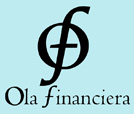
ISSN: 1870-1442
:: Number 28 Editorial |
|---|
|
The origin of inequality is directly related to political mechanisms that feed back into the sphere of economics, as historically, morally and theoretically argued by John Henry. Somehow, the today’s difficult conditions that economies across the world, as a result of the widening inequality and inequality gap, have the potential to neutralize and even surpass each other if the political will sets social welfare goals and peaceful coexistence. However, as can be seen from various angles in various collaborations of this issue number 28 of www.olafinanciera.unam.mx , the path that has been imposed on the activities of the real economy, by the financial system, has expanded the inequality gap, which has been encouraged and implemented by the governments themselves. One of the several issues addressed is how the agents and mechanisms of the new communication technologies have created real possibilities of manipulation of society, with the objectives of promoting proposals and actors, imposing adverse social projects to promote greater equity and lower inequality. But its effect is not only economic, because of the strong concentration of wealth it supposes, but also political because of the social manipulation that this exercise means in the hands of the large media corporations in close collaboration with financial power. Another contribution in this issue analyzes the process and consequences of the constant and extended transfer of essential functions of the government to the power of large corporations, promoted by international organizations, imposing privatizing policies of public services and widening inequality. Under the contracts assigned to public-private partnerships, the areas that provide the best, fastest and safest profits are being "colonized". Financializing in this way, among others, the finances of governments. Another of the economic sectors of strategic importance at a social level is the pharmaceutical industry which has undertaken, some time ago, a decided submission to the economy driven by finance, as can be seen in the pharmaceutical sector of the United States, which is analyzed in the present delivery. This broad deployment of power structures an integral process of the whole of social life submitted to the powerful and omnipresent financial sector, expanding with it the vulnerability and the economic, political and social cost of the population. Without a doubt, part of the substantial and explanatory elements of the archeology of inequality today are present under the folds of the authoritarian process exercised by the financial sector.
|
|---|

Editorial Board
|
|---|
Made in Mexico, National Autonomous University of Mexico (UNAM), all rights reserved 2004-2018.
OLA FINANCIERA, Vol. 10 No. 28, September-December 2017, is a quarterly publication, with international arbitration, edited by Universidad Nacional Autónoma de México by Instituto de Investigaciones Económicas, Ciudad Universitaria, Circuito Mario de la Cueva s/n, Ciudad de la Investigación en Humanidades, Coyoacán, C.P. 04510, México, D.F. Tel.+52 (55) 5623-0131, and Faculty of Economics, Ciudad Universitaria, Circuito Interior s/n, Coyoacán, C.P. 04510, México, D.F., www.olafinanciera.unam.mx, ola.financiera.unam@gmail.com Editor in charge: Dr. Sergio Cabrera Morales. Reservation of Rights to Exclusive Use: 04-2013-050912324700-203, ISSN electronic: 1870-1442. Responsible for the last update of this issue, Ing. Jesús Garrido López, Circuito Mario de la Cueva s/n, Ciudad de la Investigación en Humanidades, Ciudad Universitaria, Coyoacán, C.P. 04510, México D.F. date of last modification, January 8, 2018.
The opinions expressed by the authors do not necessarily reflect the position of the editor of the publication.
Permission to reproduce all or part of the published texts is granted provided the source is cited in full including the web address. Otherwise, it requires prior written permission from the institution.




